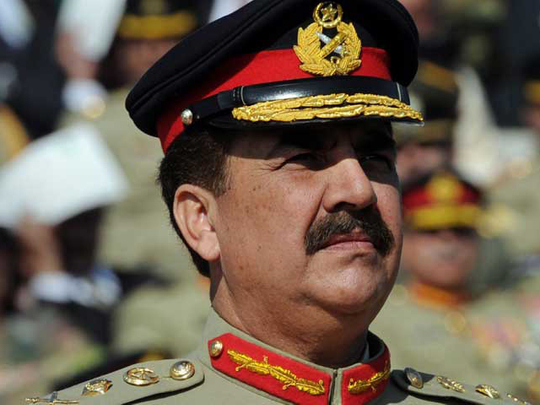
Recent scenes from daily life across Pakistan said it all. As a visibly self confident civil servant from the food department in Lahore began raiding cafés and restaurants that failed to enforce tight standards of hygiene, parents of children enrolled at private schools in Islamabad assembled to protest a steep rise in their children’s fees.
Both instances have not only worked to trigger a wider movement. They have indeed also spurred an increasingly active debate on where Pakistan is heading as a country.
Just weeks after the raids began in Lahore, the campaign to curb unhygienic food outlets has arrived in the capital city of Islamabad while kudos are increasingly being showered on Ayesha Mumtaz, the food department official who bravely kicked off the movement in the first place. Meanwhile, the protests by visibly annoyed parents of school-going children have spread to Lahore and onwards to Karachi too.
On Friday, some of the parents representing this movement finally got to meet with a government minister to hear assurances of action set to take place once private schools have been investigated and if indeed found guilty. Given the momentum that has already gone in to the parental campaign, it’s hard to imagine private schools getting off the hook without a significant retreat from the added financial charges they levied on their students.
These recent events have indeed triggered a profoundly vital question. Has Pakistan begun to change as a country, demonstrating a stronger social conscience than ever seen before? In part, that may indeed be true when it comes to the matter of agitating individuals seeking to change an otherwise stubborn status quo. And yet, Pakistan’s status quo surrounding its ruling political elite presents little evidence of heading towards progressive change.
As the variety and number of challenges for Pakistanis grow rapidly in their daily lives, the ruling structure led by Prime Minister Nawaz Sharif and other key politicians fails to rise to the occasion. Though there is plenty by way of lip service from high-ranking politicians promising to lift Pakistan’s overall outlook, subsequent decisive action to bring about a meaningful change has so far failed to materialise.
Meanwhile in recent weeks, high-profile arrests by Pakistan’s top anti corruption body targeting influential politicians in Karachi has indeed attracted widespread attention. Though the national accountability bureau or NAB has taken the lead in these instances, there is indeed a widespread popular belief that the arrests materialised with the backing of Pakistan’s increasingly influential army.
Led by General Raheel Sharif, Pakistan’s well-respected army chief, decisive action against hardcore militants in the past year, has lifted the morale across the country while winning popular recognition for the Pakistan army.
Decisive action still needed
In spite of the ray of hope triggered by these arrests, decisive action still requires to be taken to change Pakistan in a meaningful way. To begin with, the arrests in Karachi have so far mainly targeted individuals belonging to former president Asif Ali Zardari’s Pakistan People’s Party or PPP and exiled leader Altaf Hussain’s Muttahida Qaumi Movement (MQM).
To make the push credible, its essential to investigate evidence of corruption surrounding individuals from other political parties too. But such a push will only chip away at the tip of the stubbornly problematic iceberg surrounding Pakistan.
A series of follow up actions will be essential to sustain the gains. The two matters that have come to light — raids on food outlets and agitation by parents of children going to private schools, have clearly demonstrated a popular Pakistani yearning for meaningful change.
However, these events have also thrown up compelling questions. For instance, why is it that Sharif’s Pakistan Muslim League-Nawaz (PML-N) political party which has ruled for more than seven years over the province of Punjab, of which Lahore is the local capital, should not be taken to task for its failure to curb outlets linked to unhygienic food.
Similarly, more than two years after Sharif became prime minister, should his government not be taken to task for its failure to curb privately-owned schools from freely raising students’ fee, without any regulatory authority overseeing this aspect of their existence.
In addition to holding the ruling structure accountable, it is also important to re-establish an independent set of institutional mechanisms for the public’s benefit. Going forward, Pakistan should neither have to rely on the arrival of a well-meaning government official like Ayesha Mumtaz to protect the public from unhygienic food nor should parents have to come on the streets to be heard only after receiving unreasonably inflated school fee requests.
Ironically though, the ruling structure provides little hope for Pakistan turning the corner any time soon, unless there is a qualitative change in the way the country is ruled. As politicians widely appear to be a blatant let down, its also not surprising that Pakistanis are increasingly looking towards General Sharif, who is not related to prime minister Sharif, as their ultimate saviour.
Speaking to a packed audience on September 6 marking Pakistan’s defence day, General Sharif once again to the applause of his audience highlighted the army’s success in beating back the once visible advance by militants in parts of the country. As the top manager of Pakistan’s defence and security policy, General Sharif’s push has lifted Pakistan’s outlook in more than just a significant way.
For prime minister Sharif and other politicians, the main task is to pick the threads and ensure that the gains remain sustainable. Though Pakistanis are more visible today in demanding their rights, the writing on the wall is abundantly clear; Pakistan’s rulers have yet to prove that they are not poised to become a bigger disappointment than ever before.
— Farhan Bokhari is a Pakistan-based commentator who writes on political and economic matters.








